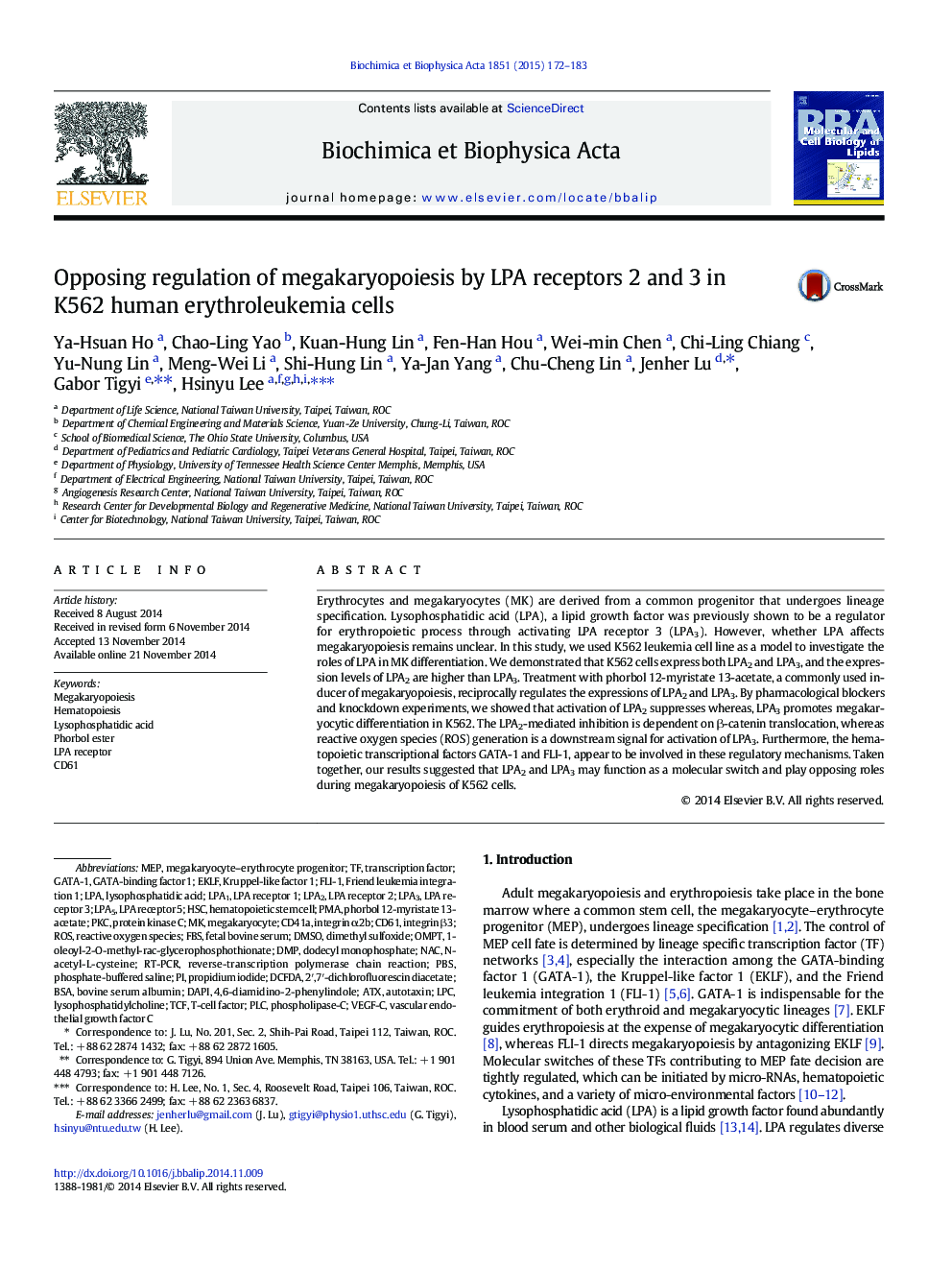| Article ID | Journal | Published Year | Pages | File Type |
|---|---|---|---|---|
| 8302140 | Biochimica et Biophysica Acta (BBA) - Molecular and Cell Biology of Lipids | 2015 | 12 Pages |
Abstract
Erythrocytes and megakaryocytes (MK) are derived from a common progenitor that undergoes lineage specification. Lysophosphatidic acid (LPA), a lipid growth factor was previously shown to be a regulator for erythropoietic process through activating LPA receptor 3 (LPA3). However, whether LPA affects megakaryopoiesis remains unclear. In this study, we used K562 leukemia cell line as a model to investigate the roles of LPA in MK differentiation. We demonstrated that K562 cells express both LPA2 and LPA3, and the expression levels of LPA2 are higher than LPA3. Treatment with phorbol 12-myristate 13-acetate, a commonly used inducer of megakaryopoiesis, reciprocally regulates the expressions of LPA2 and LPA3. By pharmacological blockers and knockdown experiments, we showed that activation of LPA2 suppresses whereas, LPA3 promotes megakaryocytic differentiation in K562. The LPA2-mediated inhibition is dependent on β-catenin translocation, whereas reactive oxygen species (ROS) generation is a downstream signal for activation of LPA3. Furthermore, the hematopoietic transcriptional factors GATA-1 and FLI-1, appear to be involved in these regulatory mechanisms. Taken together, our results suggested that LPA2 and LPA3 may function as a molecular switch and play opposing roles during megakaryopoiesis of K562 cells.
Keywords
DMPphorbol 12-myristate 13-acetateEKLFLPAATXDCFDAPKCAutotaxinPLCN-acetyl-l-cysteineDAPILPCCD61TCFPhospholipase-CRT-PCRNACGATA-binding factor 1HSCPBSLPA2FBSOmpTLPA5LPA3LPA1VEGF-CMEP2′,7′-dichlorofluorescin diacetate4,6-diamidino-2-phenylindoleBSADMSOFli-1PMAMegakaryopoiesisROSbovine serum albuminlysophosphatidic acidPhorbol esterintegrin β3Dimethyl sulfoxidefetal bovine serumHematopoietic stem cellT-cell factorTranscription factorVascular endothelial growth factor CLysophosphatidylcholinePhosphate-buffered salineMegakaryocyteHematopoiesisreverse-transcription polymerase chain reactionProtein kinase CPropidium iodideGATA-1Reactive oxygen speciesLPA receptor
Related Topics
Life Sciences
Biochemistry, Genetics and Molecular Biology
Biochemistry
Authors
Ya-Hsuan Ho, Chao-Ling Yao, Kuan-Hung Lin, Fen-Han Hou, Wei-min Chen, Chi-Ling Chiang, Yu-Nung Lin, Meng-Wei Li, Shi-Hung Lin, Ya-Jan Yang, Chu-Cheng Lin, Jenher Lu, Gabor Tigyi, Hsinyu Lee,
